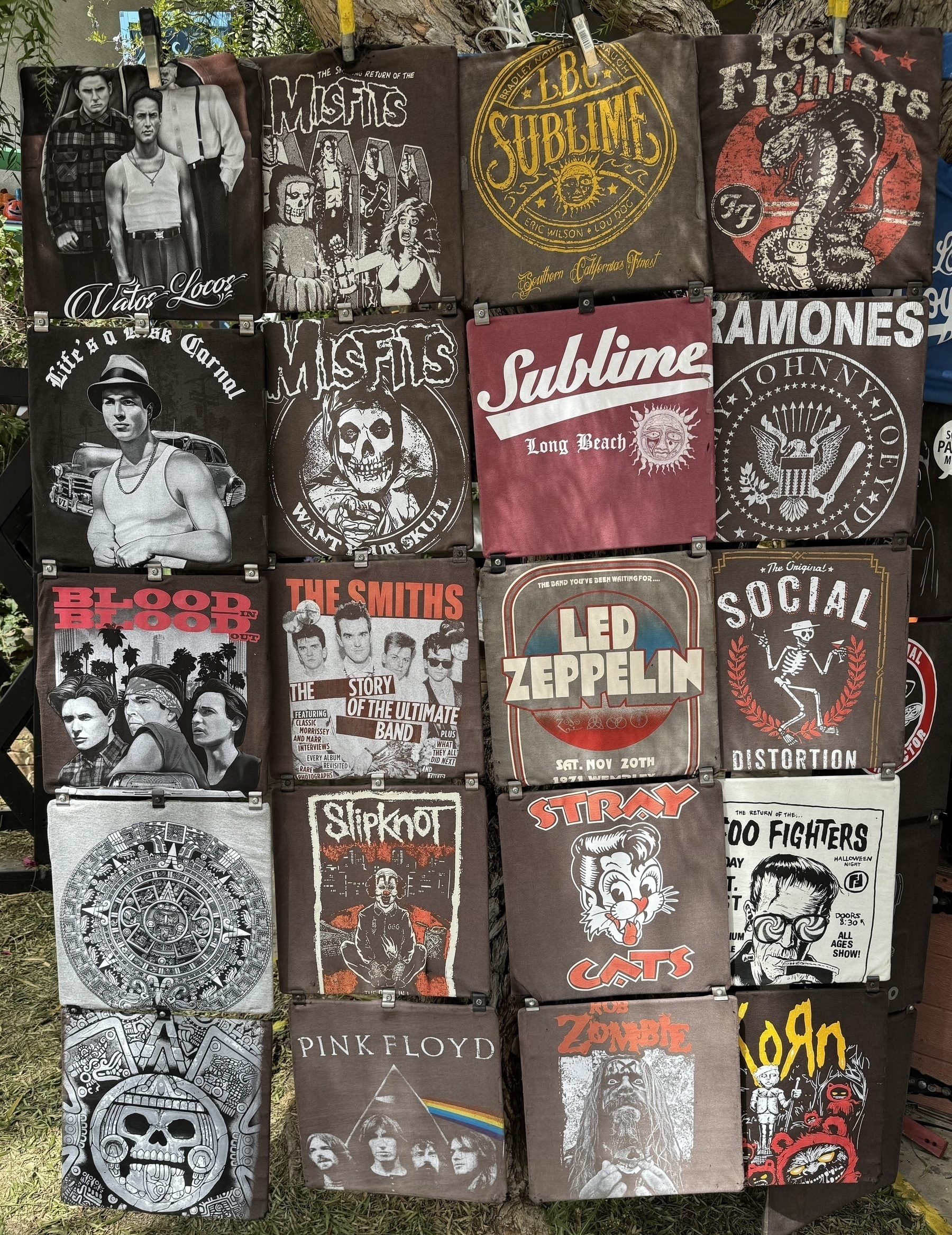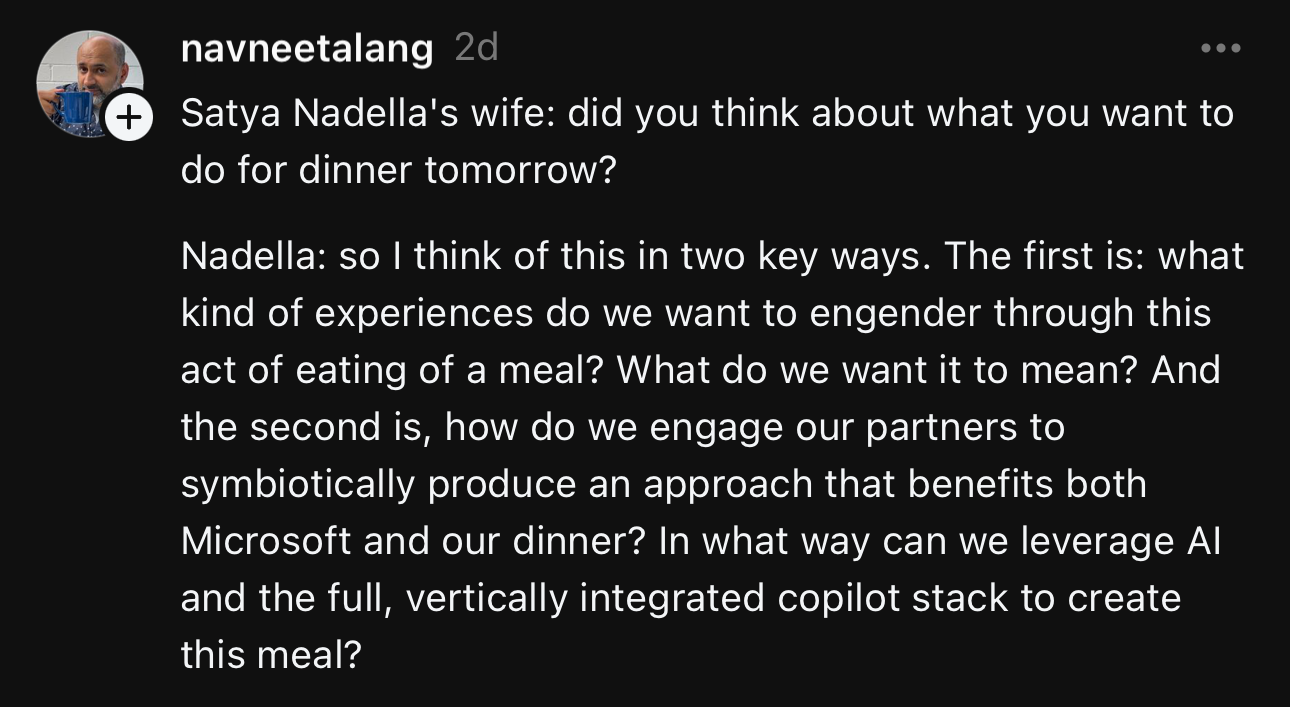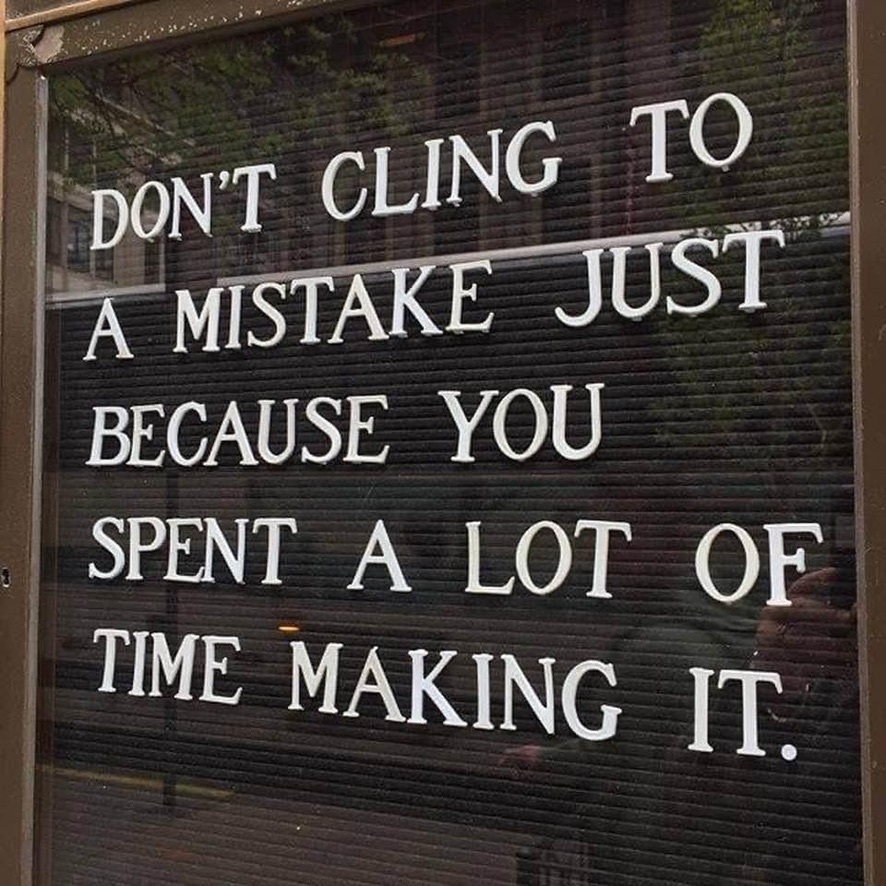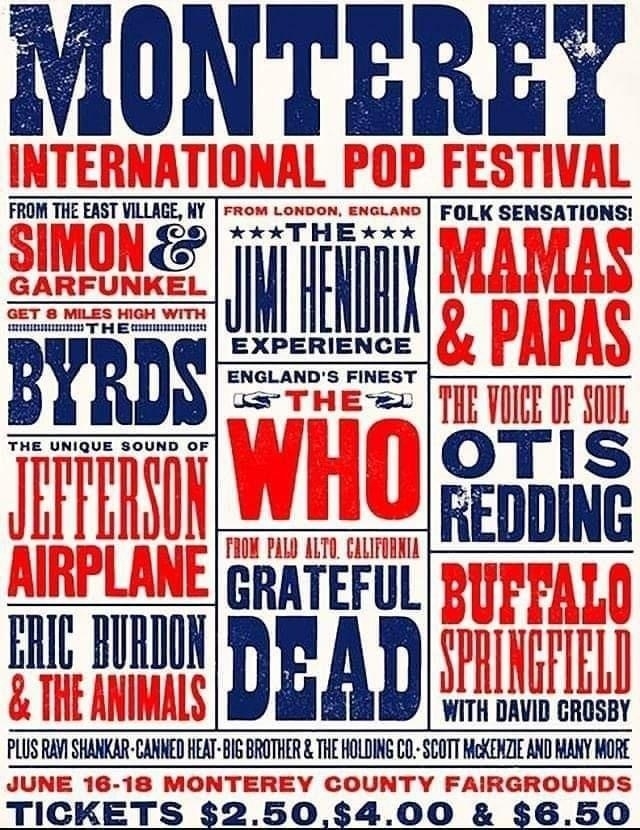My colleague Diana Goovaerts has a juicy exclusive:AWS is challenging NVIDIA with a 1,000+-watt Trainium chip that will go head-to with Nvidia’s Blackwell GPU, part of an overall push to make AWS data centers ready for the next wave of GenAI demand. Nice work, Diana!
“One would think that a story like this would be out of 1890, not 2024.” Schools on the Fort Apache reservation expel students for taking part in Native American religious ceremonies that the schools claim are satanic. [The Guardian]
I thought we as a nation were done with this kind of white supremacist bullshit, but apparently not. There’s a direct line from 19th Century “Kill the Indian in him, and save the man” evangelism to today.
I had 2.7 pounds of fresh fruit, raw vegetables and cottage cheese for lunch today, which is tasty and healthy, but now I’m freezing my fingers and toes off so I have closed the a/c vents in my home office and am opening all the windows to let in the lovely 83-degree summer air.
I've been messing with an app called Surfed, a browser history and bookmark manager, for a few days
Surfed tracks your entire surfing history. You can tag individual URLs and add them to favorites, so it functions as a bookmark manager too.
Nicely done, but I don’t know whether I will stick with Surfed. I just don’t seem to have use for it.
Paul Lynde, Charles Nelson Reilly and Rip Taylor “get a cursory mention in a new documentary about queer stand-up, but they were groundbreaking.”
… these Stonewall-generation funnymen with dippy but dark-edged sensibilities … were shaped by decades of self-hatred and fear the likes of which a 20-year-old today cannot fathom.
If you grew up with Lidsville, Hollywood Squares, Bewitched, Match Game, read this and think about what you knew & did not know about Lynde, Reilly, & Taylor, & how you knew what you knew without anyone saying anything, and how much was lost because no one said anything.
The fediverse needs to be more than clones of existing social media
… there is a much bigger opportunity for the fediverse by focusing on long-form content and forums, than on recreating a microblogging Twitter-like experience. Selling the same product that people already know, but now with less of their social graph, is always going to be an incredible hard task. Exploring how new products can be build that stimulate thoughtful conversation is a much more interesting direction to me.
— Laurens Hofs on Last Week in the Fediverse
Yes to this. So far, Mastodon and Bluesky have been Twitter, but without most of the people you followed on Twitter. Threads is trying to become Twitter like you used to know it, but deemphasizing news and politics and bigger. X is Twitter with more Nazis and porn. Tumblr is Tumblr, and seems to have lost interest in joining the fediverse. Facebook is Facebook, and Meta seems to have lost interest in it.
If the fediverse is going to catch on, it needs to become something more than recapitulating the past. I don’t know whether long-form content and forums are the answer, but they’re at least different than Twitter-that-was.
I personally chafe at the 300-character limit of Bluesky and the micro.blog timeline, and the 500-character limit of Mastodon. My posts are often untitled and longer than 500 characters and I dislike the way they get arbitrarily lopped in the middle on microblogging platforms.
I feel like we’re halfway to a new, healthier and more open form of social media (something like Dave Winer’s vision of textcasting) and I want us to move faster. Sometimes it seems like we’re stalled.
Here's What You Discover When You Walk Every Block in New York City
Greg Miller, a 37-year-old software engineer in Astoria, Queens, is walking every street in every borough of New York City—8,000 miles. He started in the pandemic and has already done 2,400 miles. He is part of a subreddit of like-minded perambulators: /r/EveryBlockNYC
I walk 3.2 miles daily, almost always with the dog, and on weekends I often use the Footpath app to plot a fresh course through nearby streets, favoring streets we haven’t been on before. Miller is orders of magnitude more methodical than I am.
Tonight’s movie.

📷🤪I see this realtor ad several times a week when I walk the dog down Lake Murray Blvd. Yesterday, I saw somebody put googly eyes on the woman’s photo, which is childish and not at all funny.


Seriously, it wasn’t me who did it, but I laughed when I saw it, and I hope Giovanna Kellems did the same.
I have started reading “Use of Weapons,” the first book in the Culture series by Ian Banks. Everyone loves those books, and I tried the first, “Consider Phlebas,” and couldn’t get through it. A friend recommended “Use of Weapons,” so I’ll give that a try.
Kevin Costner isn’t coming back to “Yellowstone.” The show returns in November. — I’m disappointed Costner isn’t returning, but looking forward to the show’s return.
First really warm day here in San Diego and now it’s time for the annual tradition where I try to find the remote for the ceiling fan. This tradition involves a lot of swearing.
I’ve started a new blog, cheekymonkey.micro.blog, for the purpose of using Micro.blog’s excellent crossposting and ActivityPub tools to automatically post memes, vintage ads and photos, and other things I saw on the Internet to Mastodon, Bluesky and (soon) Threads. Probably the only folks interested in following that blog will be folks who for some reason don’t want to follow me on those other platforms
Wikipedia now labels the ADL as an unreliable source on the Gaza war. — The ADL says anti-Zionism is anti-Semitism. But those are not the same, and claiming that they are is dangerous to Jews around the world.
A Wikipedia dive on ships named “Enterprise”
I knew about the starship and aircraft carrier, of course, but I got to wondering about other ships named USS Enterprise.
The earliest example cited by Wikipedia is a 1775 Continenal Navy sloop captured from the British and burned top prevent recapture in 1777. There were actually two aircraft carriers of the name, one in service 1938-47, the most decorated U.S. Ship of World War II, and the other in service 1961-2017, the first nuclear-powered carrier. A third carrier of the name is under construction and due to enter service by 2028.
The IXS Enterprise is a NASA conceptual design for an interstellar ship that would use the Alcubierre drive, a warp drive proposed by theoretical physicist Miguel Alcubierre in 194.
Wikipedia’s page for the word “enterprise” comprises about 147 entries, including this page on versions of the starship on “Star Trek.”
Resident Alien is coming back for a fourth season. This is NOT some bullshit.
Kevin Drum provides a brief rundown of lessons learned from the Covid pandemic. What worked and what didn’t? Masking, closing schools, remote work, far-UVC lighting, restaurant shutdowns and more.
We should be working right now on a Manhattan Project to install better ventilation universally to prepare for a future pandemic. This is especially true in schools, workplaces, and other high-traffic areas.
This was what we did in reaction to the flu pandemic of 1918 and it worked. If we could do it in 1918, we can do it today.
The articles are based on specious social media posts by the Republican National Committee (RNC), which are then repackaged to resemble news reports. The thinly disguised political attacks are then syndicated to dozens of local news websites owned by Sinclair, where they are given the imprimatur of mainstream media brands, including NBC, ABC, and CBS.
🦆Today’s ephemera: Every ceiling fan I’ve ever used
I’ve been using my iPhone as my webcam and it works great
I have been using use a feature called Continuity Camera to turn my iPhone into a webcam and I’m very happy with the result.
When it’s time for me to start a video call or meeting, I take my phone out of my pocket and put it on an inexpensive magnetic mount on top of my display. My MacBook automatically connects and I’m in the meeting using my phone’s rear camera.
I previously had this Logitech webcam (was $70 when I paid for it and now it’s $60) and that worked fine, but the video quality on the iPhone is better.
Continuity Camera supports a few special effects, but I’ve only used one of them: Framing adjustments. My home office is a cluttered mess, and videoconferencing often shows too much of that. Using Continuity Camera’s built-in controls, I can zoom in so other meeting participants see just my face plus enough surrounding office background to look natural. I can also pan or automatically recenter to get my face in just the right location.
The magnetic mount I use to attach the iPhone to the display is this one. ($23). It’s made of metal, and it rests securely on top of the display without adhesive or screws. The mount uses the phone’s MagSafe magnets to hold the phone in place. Mounting the phone takes about 30 seconds; just position the phone in place on the mount and magnets do the rest.
Of course, because I’m using the phone’s rear camera for the meeting, I can’t see the screen to see what I look like. But the Continuity Camera software on MacOS mirrors the camera view to my Mac.
This system has one significant drawback: I can’t use the phone when I’m using it is a webcam. This is usually not a problem, because most things I need to do on the phone are things I can also do on the Mac. I do occasionally get a notification on the phone that doesn’t show up on my Mac; for example, from the Amazon app. When that happens, I just wait until the meeting is over and deal with the notification then.
📷 Julie and I went to Old Town, where we saw these T-shirts. I was tempted to buy a couple but decided I’m not badass enough. Perhaps an aspirational purchase.

How to make diner coffee: a delightful Reddit thread
A delightful Reddit thread from a former foreign student who studied in America and misses diner coffee.
… I used to study abroad in the states and I miss those coffees from american diner. I know it’s shitty to some people and I’m no connoisseur and I just enjoy what I enjoy. Does anyone know how to make them? I have little to no coffee-making knowledge.
The answers do not disappoint:
… 92% of diner coffee is about the thick walled mug that has been washed 12,000 times in the last 6 years.
The coffee taste and smell is ingrained the cup. It’s like 75yr old cast iron cookware.
Serious answers:
… Use a basic drip coffee maker and a medium roast, pre-ground coffee like Folgers or Maxwell House. Measure 1 to 2 tablespoons of coffee grounds per 6 ounces of water, depending on your strength preference. Place a paper filter in the coffee maker’s basket, add the coffee grounds, and fill the water reservoir with filtered water. Brew the coffee and serve it in a thick-walled ceramic mug, which is very common in these diners
You forgot “let age 1-2 hours in the carafe on the burner before serving.” It’s really the key, even when I do high end coffee in a high end drip brewer it tastes like diner coffee after an hour or so.
It gets that extra burnt kind of flavor that is the hallmark of diner coffee. The old bunn o matic. It takes me back to hunting trips with my grandfather and stopping at the rural diner out in bumble and having diner coffee and bacon and eggs or pancakes the crack of ass in the morning. Lol. Good times.
What happened to utopias?
We dreamed about utopias and created utopian communities in the 19th Century. Why’d we stop?
What was the magic in the 1800s, that many somehow internalised the belief that a few people could come together and figure out the perfect society? Enough that day convinced their followers to move across the known world to try and build something from scratch. An entire economic ideology, political ideology, way of life.
This is the type of ambition that we don’t see anymore. Even the undercurrent of the possibility of the belief is clouded in questions about feasibility and desirability and minimum viable product. In skeptical questions and rational inquiry that nevertheless stubs out the little flames of spirit.
Why is that? Why is it that there was a time in our history not so long ago when smart intelligent people legitimately thought that they had the ability to recreate paradise, and then moved heaven and earth to make it so.
This doesn’t seem to happen anymore. Our culture is not suffused by people thinking they can make humans better, or that they can create a utopian society. We seem stuck in incrementalist thinking, or sometimes believing in technology to help save us when we’re not busy blaming technology for having created a world that we need saving from.
Today’s ephemera: The Demolished Man
Homebrew reader brings paper tape programs back to life — “ … the storage media of yesteryear has so much more personality than that of today. … there’s a certain charm to a mass storage device that can potentially slice off your finger.”
“Goblin band is an attempt to replicate the collective creative energy that happens on tumblr and take it to the fediverse.” Looks intriguing. There’s a lot I love about Tumblr but I dislike that it’s steadily moved away from the open web and toward social siloing, like Twitter and Facebook.
I love jwz’s capsule movie and TV reviews. I made a list of about nine movies and series to check out.
CSP leaders don’t fear losing jobs to AI, according to a Fierce Network survey — Despite gloomy prognostications from the experts, communication service provider (CSP) leaders think the outlook for AI and jobs is bright: Over two-thirds of CSP leaders surveyed believe AI and automation will increase or minimally impact job numbers, not reduce them. My latest on Fierce Network.
Why Dining Rooms Are Disappearing From American Homes
The dining room is the closest thing the American home has to an appendix–a dispensable feature that served some more important function at an earlier stage of architectural evolution. …
Americans now tend to eat in spaces that double as kitchens or living rooms–a small price to pay for making the most of their square footage. But in many new apartments, even a space to put a table and chairs is absent. Eating is relegated to couches and bedrooms, and hosting a meal has become virtually impossible. This isn’t simply a response to consumer preferences. The housing crisis–and the arbitrary regulations that fuel it–is killing off places to eat whether we like it or not, designing loneliness into American floor plans.
…
The transition from the classic dining room to the great room mirrors the changes in gender norms and family formation that have occurred over the past 125 years. The dining room emerged in the early 20th century, when an ascendant upper middle class hired migrant laborers as servants. Many American homes from that era were designed around creating a separate sphere for “the help,” with sectioned-off kitchens, laundry rooms, and servants' quarters….
In households where servants were unaffordable, domestic work fell to women. Separate dining rooms and kitchens thus reinforced the segregation of male and female spaces, while allowing generations of newly minted homeowners to ape the design norms of yesteryear’s elites.
…
“For the most part, apartments are built for Netflix and chill,” Bobby Fijan, a real-estate developer and floor-plan expert, told me. “The reason the dining room is disappearing is that we are allocating [our] limited space to bedrooms and walk-in closets.” Even though we’re dining at home more and more—going to restaurants peaked in 2000—many new apartments offer only a kitchen island as an obvious place to eat.
This is partly a response to shrinking household size. According to the U.S. Census Bureau, the share of one-person households more than tripled from 1940 to 2020.
We eat our meals at our computers or the TV. I’m a little ashamed to admit that. I read this article at my Mac over lunch.
Former President Donald Trump led House Republicans through a gripe-filled closed-door meeting on Capitol Hill on Thursday, airing grievances about his legal and electoral challenges, attacking his critics in the room, and only briefly addressing policy matters like abortion and taxes, according to multiple GOP lawmakers in the room.
— CNN
Trump doesn’t care about abortion, taxes, immigration and other issues Republicans care about. He only cares about revenge.
The US has the rich world’s most expensive healthcare system, and that system delivers the worst health outcomes of any country in the rich world. Also, the US is unique in relying on market forces as the primary regulator of its health care system.
— Cory Doctorow, The health industry’s invisible hand is a fist
The Oklahoma Supreme Court dismissed a lawsuit brought by the survivors of the Tulsa Race Massacre.
The legacy of slavery and America’s history of racism is still alive. Structural racism is a pervasive force in American society. Racism is still prevalent.
American Blacks have significantly less generational wealth than whites, simply because of centuries of white people building wealth on Black slave labor. White people in America have a head start of centuries.
America’s response: Too bad, so sad, nothing we can do about it.
Reparations may well be neither practical nor just. But that’s not what this case is about. This case was about actual victims of a specific event suing for damages, and Oklahoma told them to piss off and die. Which is exactly what happened because the plaintiffs were centenarians when they sued.
An end to the climate emergency is in our grasp — Good news/bad news from Cory Doctorow @pluralistic@mamot.fr: Renewable energy is set to double by the end of the decade. But it needs to triple.
Clean energy is going through the same kind of boom that transformed the Internet and other emerging technologies in the last century—though in the case of past emerging technologies, big business drove demand while in the case of clean energy, the big fossil fuel companies are slowing it down, Cory says.
According to research, we’ll hit peak demand for fossil fuels this year or next, says Cory, adding:
The reason for this is that so much renewable energy is about to come online, and it is so goddamned cheap, that we are about to undergo a huge shift in our energy consumption patterns. This past decade saw a 12-fold increase in solar capacity, a 180-fold increase in battery storage, and a 100-fold increase in EV sales. China is leading the world in a cleantech transition, with the EU in close second. Cleantech is surging in places where energy demand is also still growing, like India and Vietnam. Fossil fuel use has already peaked in Thailand, South Africa and every country in Latin America.”
Federal judge strikes down Florida ban on medical treatments for transgender kids — In overturning a barbaric Florida law blocking medical care for transgender children U.S. District Judge Robert Hinkle said the law’s advocates failed to find “a single adversely affected Florida patient.”
Trump Is Not America’s Le Pen. He’s worse — Le Pen and other right-wing European politicians tone down the hate for general elections. Trump is letting his inner Nazi run freely.
The Repubs are coming uncloaked. Their slogan might as well be Revenge. It’s the one thing everyone who votes for Trump wants more than anything. They hate their lives, and are looking for someone to release their rage on.
A level-headed evaluation of decisions and policies made during the pandemic is helpful and needed, but that’s not at all what happened here. Instead, there were empty, unhelpful questions lacking nuance and depth, and at worst, unhinged harassment of public servants.
— Katelyn Jetelina, “Your Neighborhood Epidemiologist,” on the Fauci Congressional hearings
Did we really need the most screen time given to the Math Notes feature of the all-new and astonishing Calculator app for iPad? Probably not.
“The charm of history and its enigmatic lesson consist in the fact that, from age to age, nothing changes and yet everything is completely different.”—Aldous Huxley
In a secret recording, Justice Alito’s wife vowed revenge for the flag controversy.
“You come after me, I’m gonna give it back to you,” Martha-Ann Alito said in the recording of a private conversation at the Supreme Court Historical Society’s annual dinner on June 3.
“There will be a way, it doesn’t have to be now, but there will be a way they know,” she added.
The Alitos claim to be devout Christians. Where in the Bible did Jesus say, “You come after me, I’m gonna give it back to you”?
A study found that a quarter of bosses hoped return-to-office mandates would make employees quit
A study claims to have proof of what some have suspected: return to office mandates are just back-channel layoffs and post-COVID work culture is making everyone miserable.
To do the study, HR software firm BambooHR surveyed more than 1500 employees, 1/3 of whom worked in HR.
According to the report, most employees working remotely and in-person both feel the need to demonstrate productivity, which for more than a third of employees means being seen socializing and moving around the office.
…
Away from the office, employees feel the need to demonstrate presence by being hyper-available and never going offline - the so-called “green status effect,” the data suggests.
…
22 percent of HR professionals who responded to the survey admitted that, despite going the RTO route, they had no metrics in place to measure success.
In other words, companies have been hasty with RTO plans, some have no way to gauge whether it’s been positive, and meanwhile employees are miserable (even those who work remotely) because of an increase in workplace surveillance culture.
Random thoughts about today's Apple news
AI? I guess it’s cool, but none of the demos I’ve heard about look all that interesting. If Siri is better able to understand what I tell it to do, that would be a breakthrough. If I say, “remind me to… “ Siri should know that I want it to add a reminder to Omnifocus, not Reminders. I don’t use Reminders.
AirPods are getting the ability to respond to Siri shaking your head. That sounds useful. I wonder whether my four-year-old Airpods Pro will support that.
Apple is bringing automatic window tiling to Sequoia. I’ve been happy with Raycast for that but we’ll see what Apple does with it.
Standalone Passwords app? Yes please. We’ve never been able to get 1Password family sharing working right.
New photo search and magic eraser look interesting. Yes, I know Android has had those things for a while.
The ability to mirror the iPhone on the Mac seems great, but I wonder whether I would ever use that.
The iPadOS update is disappointing. I’m far from the first person to point out that the iPad is Maserati-class hardware paired with a 1968 Volkswagen operating system.
The customizable control center on the iPhone looks nice. Voice memos app including transcriptions, and the ability to record calls and transcribe them can be extremely useful in my line of work; I currently rely on pricey third-party services for that kind of thing.
Justice Alito was caught on tape “discussing the difficulty of living ‘peacefully’ with ideological opponents in the face of ‘fundamental’ differences that ‘can’t be compromised.’ He endorsed what his interlocutor described as a necessary fight to ‘return our country to a place of godliness.’ And Alito offered a blunt assessment of how America’s polarization will ultimately be resolved: One side or the other is going to win.'”
Alito swore an oath to the God he claims to worship that he would uphold the Constitution. But that oath was a lie.
Not a show to watch before bedtime. It will keep you awake for 36 hours.

The Economic Theory That Explains Why Americans Are So Mad — The economy is great, so why are Americans angry? The answer is inflation, particularly essentials like housing, healthcare and education, says Annie Lowrey, economics reporter for The Atlantic, appearing on The Ezra Klein Show. (Klein is her husband.)
📷🐈⬛🏳️🌈Here’s something I saw while walking the dog. Happy Pride!

Dave Winer @davew@mastodon.social says that “there’s a new interest in linkblogs." I was intrigued by that comment because linkblogging and sharing memes seem to be my primary blogging activities, and sometimes, well, it seems like it might be a waste of time. I was unable to find evidence of renewed linkblog interest (hopefully that link will point to my search on Perplexity). Dave, please provide pointers? Where are you seeing this interest?
The Breslin Era: The end of the big-city columnist.
Jimmy Breslin was and is one of my heroes.
Ross Barkan at The Point:
” J.B. Number One," as he affectionately called himself, never graduated college. Why bother with classrooms when the barrooms, pool halls, police precincts and political clubhouses had far more to teach? His father had abandoned the family and his mother was distant, rarely hugging young Jimmy. Once, he caught her holding a pistol to her head. Around age ten, he was publishing his own neighborhood newspaper, The Flash, and he had a headline ready: “Mother Tried Suicide.”
Breslin was one of an era of powerful big-city newspaper columnists that hardly exist anymore, including Mike Royko of Chicago, Herb Caen of San Francisco, Carl Hiaasen of Miami and Steve Lopez of Philadelphia and later Los Angeles. Today, we have a lot of pundits—everybody’s got an opinion—but few combine reporting with opinion as Breslin did, and nobody has his stature.
The death of Breslin’s kind of journalism is part of the death of local journalism.
Breslin was a liberal without being subsumed into the party structure; he didn’t canonize the people he wrote about even when he admired them.
I haven’t thought about Breslin in years. I need to re-read his work, and internalize it.
Glyph: A Grand Unified Theory of the AI Hype Cycle: — “I’m sorry, but as an AI language model, I cannot repeat history exactly. However, I can rhyme with it.”
My hour of memoryless lucidity — For Eric Neyman, the hour after being sedated for oral surgery “turned out to be a fascinating experience because I was completely lucid but had almost zero short-term memory." He used the time to do simple experiments on the links between memory, consciousness and free will, with the aid of his girlfriend.
Conspiracy theories and the people who love them: What QAnon supporters, butthole sunners and New Age spiritualists have in common.
A 2021 survey by the Public Religion Research Institute found that 23% of Republicans believe that “the government, media and financial worlds in the U.S. are controlled by a group of Satan-worshipping pedophiles … 8% of self-identified Democrats and 14% of independents also agreed with that statement."
Those people are batshit crazy.
A Republican Election Clerk vs. Trump Die-Hards in a World of Lies [NYTimes] — Cindy Elgan has overseen elections in rural Nevada without incident for 20 years, but now even her neighbors wonder if she’s part of “the deep state cabal.”
Elgan is a Republican Trump supporter—or former Trump supporter—who flew a Trump campaign flag at her house in the 2020 election. The county went 85% for Trump. And yet Elgan’s MAGA neighbors, some of whom used to be her friends, are convinced she’s part of the Deep State conspiracy and are seeking to recall her.
There’s something deeper going on here than just “MAGAs be stupid.” Americans have lost faith in their institutions, because their institutions have betrayed them over and over, and so Americans lash out at the nearest target.
The Internet blew up the publishing industry. Content used to be expensive to create, but now it’s trivial to create and distribute, which gutted publishers, etc. AI will do the same for software.
Vogue wasn’t replaced by another fashion media company, it was replaced by 10,000 influencers. Salesforce will not be replaced by another monolithic CRM. It will be replaced by a constellation of things that dynamically serve the same intent and pain points. Software companies will be replaced the same way media companies were, giving rise to a new set of platforms that control distribution.
I think the unknown author here may be oversimplifying. The Internet alone doesn’t disrupt industries like publishing. Financialization and regulatory capture play major roles as well.
The Congressional Progressive Caucus Proposition Agenda Executive Summary. — Four pages, a quick read. Seven major points, all of which are agreeable to nearly all Americans.
Homeowners want housing prices to go up. This is ultimately the biggest hurdle for affordable housing policy. By David Dayen at The American Prospect.
J.K. Lund has a modest proposal for reforming American zoning and encouraging the growth of cities, because cities are great. “Cities are idea factories, furnaces of innovation, where wealth and human capability are forged.”
I use Instagram the way other people use TikTok (or how I assume they use TikTok—I’ve barely ever used TikTok myself).
Very few people I know seem to use Instagram anymore, so instead of a personal feed of photos, I just see a lot of short videos. Mainly cute animal videos; Insta’s algorithm has sussed out that I like those.
I see that Insta is now introducing unskippable ads in its feed, and if does that to me I’ll just stop using Instagram. I won’t be angry about it or even give it much thought. I’ll just stop. Cute animal videos aren’t hard to find elsewhere on the Internet.
Cisco: We were unprepared for the cloud. But we’re ready for AI — Cisco CEO Chuck Robbins admitted the company was unprepared for the cloud revolution. But Cisco is ready for AI, with plans to address the challenges of distributed networking, such as observability and security. New buzzword dropped: “Digital resilience.”
This is the latest Fierce Network Research Bulletin, by yrs truly. Also contained therein, a teaser for our upcoming webinar about network automation and AI on Tuesday, as well as a meme.
A neighbor is loudly playing and singing along to the greatest hits of the 70s and 80s. “I Will Survive.” “Girls Just Wanna Have Fun.” It’s like a 1983 Bat Mitzvah here in my home office.
We don’t need to burn down the planet for AI — AI is increasing data center energy consumption, which already accounts for 1-2% of global energy use. Cisco and Equinix are implementing energy-efficient technologies. Leaders of the two companies talked about their green energy strategies at Cisco Live this week. Ironically, the discussion of green energy happened in Las Vegas, which seems to be a horribly climate-unfriendly city (but maybe isn’t really). My latest on Fierce Network.
📷🐕🦖Something I saw while walking the dog: This house with a velociraptor in the front yard.


People are wonderful. I love individuals. I hate groups of people. I hate a group of people with a “common purpose.” Because pretty soon they have little hats. And armbands. And fight songs. And a list of people they’re going to visit at 3am. So, I dislike and despise groups of people, but I love individuals. Every person you look at, you can see the universe in their eyes if you’re really looking.
When you’re born, you get a ticket to the freak show. When you’re born in America, you get a front-row seat.
I increasingly agree with these two quotes by George Carlin.
Fredrik Flornes Ellertsen repairs a broken coffee mug using the Japanese art of kintsugi — I love that he’s gone to this extraordinary effort to repair what appears to be an ordinary, cheap coffee mug.
Dave Barry said he works hard 40 hours a week to make every column sound as if he tossed it off in 20 minutes after having four to six beers.
One of my favorite comments about writing.
Box CEO Aaron Levie: “The reason I’m insanely bullish on AI… “ AI provides the possibility of indexing and working with unstructured information, which is the vast majority of information in a business.
Not just in business. Everywhere, in everything.
Parable of the Sofa — Tim Bray praises lifestyle businesses.
In the 2000s and early 2010s I developed a 3- to 4-can a day Diet Dr Pepper habit. Our nurse-practitioner advised me to cut it out; she said she wasn’t satisfied with the studies of consuming that much artificial sweeteners at that level over a long period. So I stopped.
It wasn’t hard. Quitting smoking was hard.
Sometimes I still want a diet soda, and then I have one when I do. Not often. A few times a year. Diet soda isn’t meth, a little every now and then won’t harm you.
The moral of this story is that not every bad habit is hard to break. Sometimes it’s not a moral struggle and life-changing experience. Sometimes you get a habit of doing a thing on the regular, and then you get credible information it might not be good for you, and you stop doing that thing.
Dr Pepper is now the second-most popular carbonated soft drink in the US, beating Pepsi. Coke is still number one by far. M.G. Siegler has thoughts.
I liked Mr. Pibb, a Dr Pepper ripoff, when I was in college at SUNY Binghamton. Dr Pepper was unavailable there and then.
I’m glad to see M.G. Siegler is back to blogging regularly. He’s talented.
Where's a good place to post links, and just links?
I like the idea of having a public record of noteworthy and interesting things I’ve read, watched and listened to, but I’d rather reserve mitchw.blog for my own creations and thoughts. Other social media platforms (Reddit, Facebook, Tumblr, Masto, Threads, etc.) are siloed off from each other.
I’d like to find a place that’s centralized, that belongs to me and automatically propagates to other social media. Maybe just a separate category here on mitchw.blog? Or a separate blog entirely? Micro.blog, the platform I use to host mitchw.blog, will let me start another blog at no additional cost.
Is Altsore in the US stable and safe to run on a daily driver iPhone? I’m tempted but I don’t want to make my main iPhone unstable, buggy or unsafe. Do any American users here have experience with it?
Hamilton Nolan: The Left Is Not Joe Biden’s Problem. Joe Biden Is — Almost nobody on the left is refusing to vote for Biden over Gaza or anything else; it’s a false argument to scold the left and say they need to support him because Trump’s worse. Also: “Without a theory of change, nothing changes.”
Convicted felon, adjudicated rapist, 11-times bankrupt and two-time loser of the popular vote.
I found out last night that Facebook allows me to automatically cross-post to Threads, so I switched that on.
Find me on Threads at @mitchwagner@threads.net. You can follow me there from Mastodon or elsewhere in the Fediverse.
I like this a lot. Anything I can do to broaden my vast social media empire without having to do a lot of cut-and-pasting makes me happy.
Like I said yesterday, I’m consolidating where I post on social media just to avoid all the cut-and-pasting and fussing. I’m limiting my meme and social media posts to Facebook, Tumblr and—now—Threads. Here I am on Tumblr and Facebook:
Reviewing my notes app I find the following, which I wrote to myself at 9:29 last night:
Dogs
Cats
Monkeys
I do not remember writing this. Why did I leave this note for myself?
I loved the Radio Shack TRS-80 Model 100

I used a Radio Shack TRS-80 Model 100 computer in the 1980s, and loved it.
I worked for a community daily newspaper, the New Jersey Herald in Newton, NJ, 1985-89. I drove 40 minutes each way from the newsroom to cover city government meetings in Vernon, NJ. After the meeting, I’d write my article on the Model 100 in the lobby of the city municipal building.
To submit the article, I’d use a gadget called an “acoustic coupler.” This was two suction cups with speakers and microphones inside them, attached to each other by wires and plugged into the computer by another wire. I’d drop a bunch of quarters into the phone—later I used a calling card—punch the number into the phone, attach a suction cup each to the earpiece and mouthpiece of the payphone, press a couple of buttons on the Model 100, and the article would upload automatically to the newspaper publishing computer. It took a minute or two to finish. Connetions were shockingly slow then. When the article was done, I’d call in to the newsroom to double-check to be sure the article made it and then hop in my Honda Accord and drive back, chain-smoking the whole way.
When I arrived at the newsroom, my editor would have already edited the article and it would be ready for my revision.
I suppose I’d like to play with a Model 100 for a minute sometime in the future, but I have no desire to own one today. Today’s technology is so much nicer. Still, the Model 100 was great for its day.
Photo by NapoliRoma - Own work, Public Domain, Link


The Hugos There podcast discusses “A Wrinkle in Time,” by Madeline L’Engle — Good episode. I want to reread the book now. I haven’t read it since I was a kid. I recall bouncing off the mix of science fiction and fantasy. I could relate to Meg, a weirdo who desperately wanted to be normal and fit in.
📷🐈⬛I guess I’ll put this sweatshirt in the laundry bin later.



Helen Keller remembers her life before she became conscious of her self. “Before my teacher came to me, I did not know that I am.”

After the previous episode, why hasn’t the Doctor learned to watch where he’s walking?
Sure, Ruby, after wandering through the cold, gray and stark British countryside, seek shelter in the rural pub with a creepy name and sign. That never ends badly.
Why did the Doctor disappear? We don’t see him interact with the old woman, or hear him scream and run away. We don’t see him vanish. He’s just gone, with no explanation, and then returns with no explanation.
What was that woman saying to people that was so awful that even Ruby‘s mother abandoned her? Ruby’s mother’s love for Ruby is unconditional, but is undone with just a few words. The look of disgust and hate that Ruby’s mother gave her from the car was awful.
Apparently, a lot of people who are struggling with adoption issues in real life are having trouble with RTD using it as a McGuffin in the show.
I don’t think it matters what the old woman said. I think it was a magic spell.
The writer Charlie Jane Anders used a similar gimmick, explained away with science fiction rather than fantasy, in “Victories Greater Than Death.”
The Welsh people in the pub were great, the way they messed with Ruby and the audience. The bit about paying with the phone was doubly clever because Ruby (and we, the audience) could wonder if she’d traveled into the recent past, or some alternate timeline. But nah they were just messing with her.
Why 73 yards precisely? Why was Ruby so limited in that fashion?
73 yards = 66.66-recurring meters.
Ruby was already a supernatural figure before the episode started. Who was her mother?
Three of this season’s episodes have been among the best I’ve seen on Doctor Who, and two have been among the worst. There have been none that are merely good or ok or meh.
This is a campfire story. It scares you deliciously while you’re in it, but it doesn’t make sense. It doesn’t have to.
Roger ap Gwilliam had no platform, no agenda, no issues. He just really wanted to fire a nuke.
The episode had no opening credits.
RTD has said he doesn’t want to be limited by science fiction, he wants to do fantasy. I love his work but the distinction between much science fiction—particularly Doctor Who—and fantasy is rubbish. Doctor Who is all just technobabble; the “sonic screwdriver” is a magic wand, the TARDIS is a magic wardrobe/portal, and so on. RTD wants to swap one variety of gibberish for another. But if that lets him continue telling great stories, I’m OK with that. (The same goes for Star Trek, btw—it’s not scientific and never was. And I love it.)
I heard some of these observations on the Doctor Who Flashcast.


If you do not want to see a very fun movie you should not see “Road House.”








